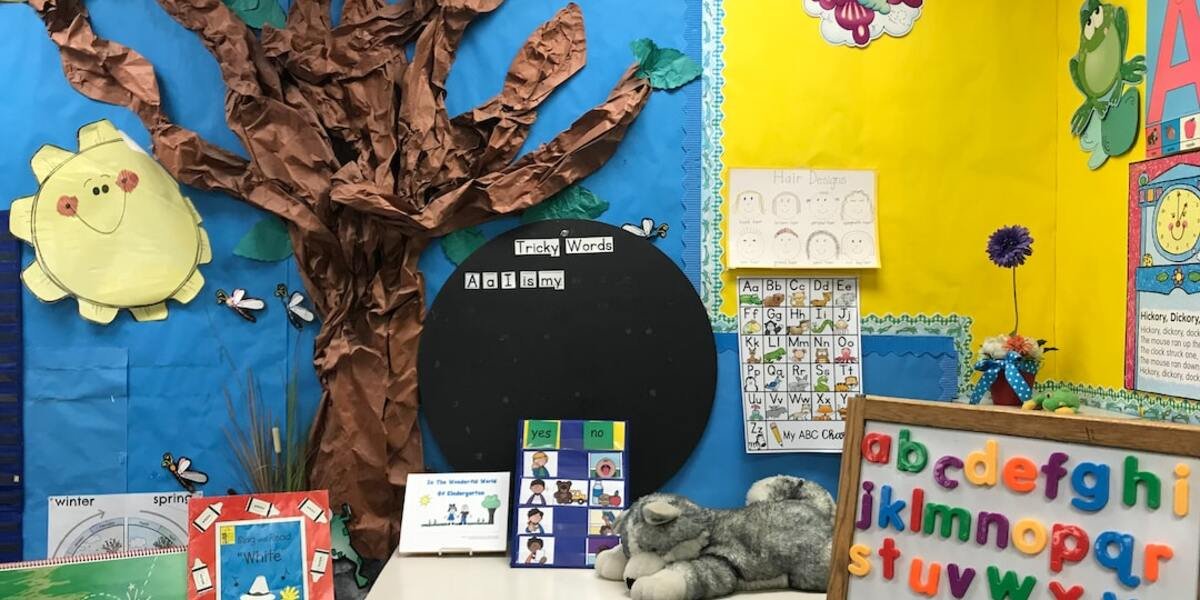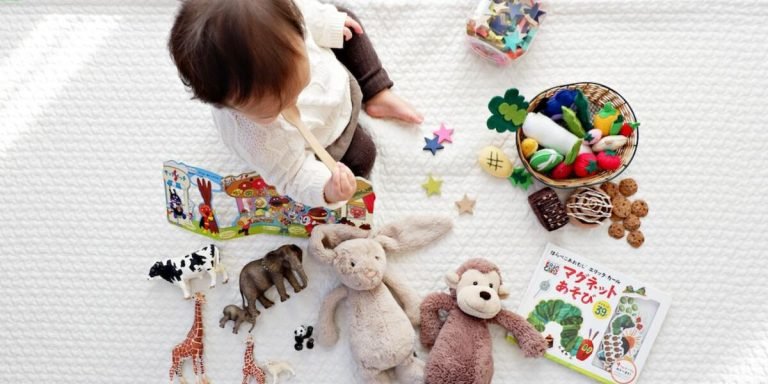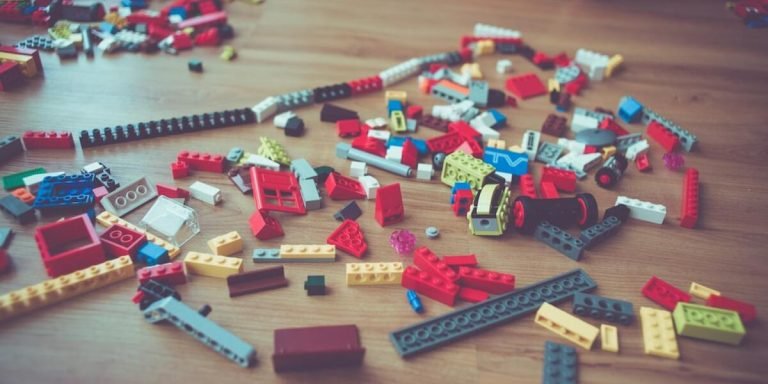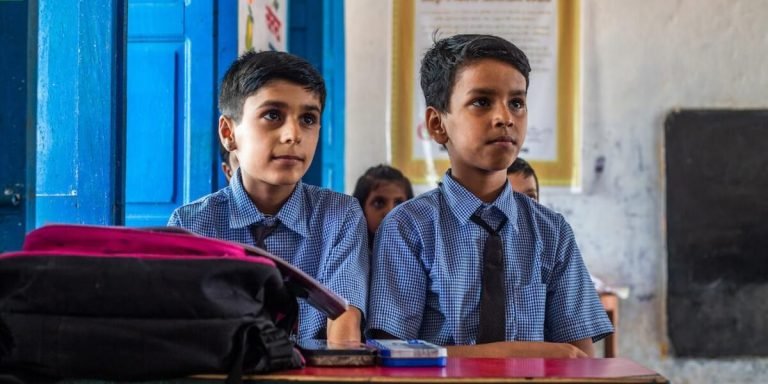Primary Education: A Comprehensive Insight into Early Learning
Navigating through the vast world of early childhood education can be daunting for parents and educators alike. This journey begins with primary education, which plays a pivotal role in shaping a child’s cognitive development, social skills, and behavior patterns.
Understanding the complexities of primary education is essential to ensure children have access to quality learning experiences from an early age. With this comprehensive insight into early learning, we aim on shedding light on core aspects like curriculum design, teaching methodologies & strategies that effectively nurture young minds during their formative years.
Did you know?
Did you know? The United Nations International Children’s Fund (UNICEF) states that the early years are crucial for children as 85% of a child’s brain is developed by age five, emphasizing the importance of primary education.
Understanding Core Components of Primary Education in Early Childhood
Understanding the core components of primary education in early childhood has never been more crucial. As we navigate through 2023, it’s evident that this formative stage plays an integral part in shaping a child’s future — academically, socially and emotionally.
Primary education is often the first formal schooling experience for children. Here’s where they acquire basic literacy and numeracy skills alongside developing foundational life capabilities like critical thinking, problem-solving abilities and social interaction skills. The introduction to diverse subjects such as science, math, language arts provide windows into realms of knowledge that can spark lifelong passions or careers later on.
Early childhood educators should focus not just on academic instruction but also fostering a love for learning during these initial years by creating engaging environments conducive to exploration and creativity. Inclusion of play-based pedagogy goes far beyond mere fun; it catalyzes cognitive development while nurturing emotional growth concurrently.
Moreover, adopting age-appropriate tech tools can amplify traditional teaching methodologies with experiential learning opportunities afforded by digital advancement in 2023. This blend serves as stepping stones towards preparing our youngsters effectively for their forthcoming educational journey – one built upon resilience amidst rapid global shifts paralleled with personal attainment milestones within primary schooling framework.
In summing up: understanding these core components enables us to comprehend how each facet contributes holistically towards equipping young learners adequately at this key juncture- shaping resilient leaders ready to traverse tomorrow’s challenges head-on!
Key Curriculum Elements for Robust Learning Foundations
Understanding the basics of primary education is critical when it comes to early childhood learning. The aim isn’t just to help children memorize information, but rather, instill in them a lifelong love for learning and knowledge acquisition. One of the core parts of this process involves gaining comprehensive insights into key curriculum elements that form robust foundations for effective teaching.
Firstly, language arts form an integral part of any curriculum aimed at young learners. This area focuses on bettering reading skills and introducing new vocabulary words while simultaneously developing comprehension abilities – all around tailored stories, poems or even everyday discussions revolving around different themes.
Next in line are math concepts which entail not only numbers but patterns as well – which may appear insignificant initially yet play a foundational role later on in subjects like algebraic thinking during high school years! To make these lessons more interesting and relatable to daily life scenarios can create positive inclination towards such topics from an early age onwards.
Science exploration also holds great importance within primary education curriculums where youngsters’ curiosity about their surrounding world is nurtured through hands-on experiments or observations leading to logical reasoning development helping further understanding complex scientific principles easier once they grow up closer look major element our ecosystem plants animals weather seasonal changes among other aspects bring forth tangible experiences vital natural phenomena!
The Role of Play in Cognitive and Social Development
Recognizing the influence of play in a child’s cognitive and social development is essential, especially within primary education. In our contemporary society where technology-driven learning is getting more common, it’s important to not lose sight of good old-fashioned playing. It may appear as just children having fun but play has profound impacts on early childhood education.
Play provides an effective means for young minds to explore their environment. As they interact with toys or their peers during these sessions, children sharpen crucial skills such as problem-solving and logical reasoning. Every puzzle solved or game won adds layers to their budding intellects preparing them for future academic pursuits.
Moreover, through pretend-play scenarios, kids learn about different roles people have in real life – be it doctors who heal patients or teachers educating students – thus providing a rudimentary understanding of societal functioning at an age-appropriate level.
Socially too, group plays are fertile grounds for developing cooperative skills like sharing resources fairly and conflict resolution diplomatically; foundations that will serve them well into adulthood.
Interestingly enough, research tells us that engagement in quality play can lead to improved communication abilities among youngsters by enhancing critical listening attributes and language proficiency while also encouraging expression – both verbal and non-verbal cues!
Incorporating Technology into Early Childhood Classrooms
In the ever-evolving digital age, integrating technology into early childhood classrooms is becoming increasingly prevalent. This trend aligns perfectly with 21st-century primary education objectives which place emphasis on critical thinking and problem-solving skills that can be enhanced through apt use of tech tools.
Early educational technologies such as interactive whiteboards, tablets preloaded with learning applications, e-books and even virtual reality experiences have begun to reshape our initial understanding of a traditional classroom setting. These diverse mediums offer opportunities for children to engage in activity-based learning which not only helps retain information but also makes acquiring knowledge fun and exciting.
However, while it’s essential to incorporate new-age gadgets into the instructional process, we must do so mindfully. The goal should always remain focused not just on acquainting youngsters with these modern devices but more importantly – harnessing their capabilities to foster cognitive development in alignment with early childhood curriculum requirements. After all, keeping up-to-date shouldn’t come at the cost of diluting foundational literacy or numeracy concepts every child needs.
Educators are now using technology judiciously by implementing blended learning approaches where conventional teaching strategies dovetail seamlessly within cutting-edge technological methods without overwhelming young learners- thus striking a balance between maintaining human interaction yet encouraging independent growth facilitated by technology-driven resources.
Interactive Software Solutions for Young Learners
In the ever-evolving realm of primary education, one key trend that has stood out in 2023 is the incorporation of technology into early childhood classrooms. Among a plethora of new-age pedagogical tools available today, interactive software solutions have shown great promise for fostering engaging learning experiences for young learners.
Interactive software applications offer an innovative approach to make lessons more lively and interactive. They transform conventional teaching techniques by using animation, sound effects and interactivity to capture children’s attention while offering them control over their own learning pace.
One such platform paving its way into preschools are Learning Management Systems (LMS). These web-based platforms provide educators with online resources which can be personalized according to each child’s unique needs and interests. As well as simplifying lesson planning process, they present material in ways that appeal particularly to digital natives who grow up surrounded by smartphones and computers.
With features like games or puzzles based on academic subjects; these systems not only make studying far from monotonous but also turn it into something enjoyable! For example: kids might learn math through solving number problems incorporated within an intriguing storyline – all while playing a game!
Similarly, augmented reality (AR) apps are another promising tool being employed across kindergartens worldwide. By overlaying images onto real-world settings via tablets or smart phones; AR offers immersive educational scenarios designed specifically for younger audiences’ enjoyment & understanding – thereby making studies less abstract yet much comprehensible at same time!
Balancing Screen Time with Traditional Teaching Methods
In the dynamic age of digitization, technology’s role in primary education is redefining early childhood classrooms and their teaching methods. As educators, it’s crucial to strike a balance between screen time and traditional learning techniques.
Broadly speaking, there are two inseparable parts to incorporating modern educational technology into today’s classrooms: productive use of tech tools and appropriate limit setting for screen exposure.
Firstly, as teachers or parents involved in young learners’ lives we must recognize how advantageous responsible usage of digital resources can be. Utilizing innovative educational applications not only broadens children’s scope for growth but also ensures interactive engagement with an appealing approach towards studies. They provide an array of diverse topics covered via fun quizzes, games or storytelling sessions that make learning effective yet lively.
Secondly comes the sensitive task – moderating daily amount of kids’ on-screen hours which should be balanced by offline activities like reading books or participating in physical playtime contributing positively to their overall development physically & mentally.
The key lies somewhere within bridging these two aspects together strategically without compromising one over another whilst keeping every child’s individual requirements into consideration when drafting out curriculum plans.
Strategies to Foster Emotional Intelligence through Primary Education
Primary education is the elemental stepping-stone in a child’s academic trajectory and holistic growth. In our era of rapid technological advancement, an emphasis on emotional intelligence is equally as significant as cognitive learning within primary education. Educators are recognizing that fostering emotional intelligence early-on can lead to happier, more well-adjusted children who become compassionate adults with stronger interpersonal skills.
Strategically embedding elements of emotional understanding into educational curricula can amplify learners’ retention capabilities and create nurturing classroom environments conducive to optimal performance. By including strategies like open discussions about emotions, role-plays depicting different scenarios or peer socialization activities parents and educators alike help facilitate better comprehension regarding one’s own feelings alongside those of others around them.
In 2023, it stands paramount for teachers promoting students’ realization that they have control over their emotions rather than being controlled by them. A balanced blend between ‘learning’ versus ’feeling’, coupled with regular mindfulness practices such as meditation breaks or yoga sessions during school hours may prove beneficial in managing classroom stress levels while enhancing overall focus amongst young minds navigating through their formative years.
Cultivating Empathy and Communication Skills Among Preschoolers
As we delve into early childhood development, special attention needs to be accorded to the role of fostering emotional intelligence in primary education. Emotional intelligence involves understanding and managing emotions effectively, which is a critical skill for children as they progress through life.
A pivotal component of this is cultivating empathy and communication skills among preschoolers. Enhancing these crucial attributes can significantly improve how youngsters interact with their peers while also setting them up for success in adulthood.
Promoting empathy among young learners starts by teaching them how emotions work. This introduces kids to different feelings like happiness, sadness or anger and shows them that it’s okay to express these sentiments openly rather than suppressing them.
Moreover, educators should model empathetic behavior themselves so that pupils have examples they can emulate. Teachers who react calmly when problems arise prove excellent models towards showing students desirable ways of handling conflicts amicably without resorting to aggression or disrespect.
Additionally, storybooks provide an innovative avenue for nurturing compassion within kids at this stage since narratives often transmit powerful messages around sharing and caring about others’ situations – thus demonstrating the concept of walking a mile in another person’s shoes.
When it comes down to boosting communication skills during primary education , one cannot underestimate the power behind active listening exercises . Emphasizing two-way communications where both parties take turns speaking enables preschoolers learn patience while waiting their turn coupled with recognizing other people’s insights apart from theirs .
Implementing SEL (Social-Emotional Learning) Programs Effectively
Emphasizing on Social-Emotional Learning (SEL) programs within the realm of primary education is imperative for cultivating Emotional Intelligence in young kids. As we navigate the year 2023, SEL has gained significant traction as an essential aspect of early childhood education.
Crafting a successful and effective SEL program begins with integrating it into daily classroom activities. Invite children to voice their feelings during class discussions or story time, allowing open conversations about emotions and relationships. A simple act like talking freely can significantly enhance their social-emotional skills.
Consistency plays a vital role in implementing this kind of learning methodology successfully too. Ensure that these exercises are not just restricted to classrooms but they also transcend school boundaries extending into homes as well where parents play their part conscientiously.
One exemplary way could be initiating parent-child projects such as maintaining ‘gratitude journals’, which would require them both to jot down things they appreciate each day, promoting healthy communication between them while also fostering emotional intelligence gradually over time.
Active participation from teachers escalates the effectiveness many fold when nurturing social-emotional development amongst youngsters enrolled in primary education system . Teachers should attend regular trainings on current methodologies and techniques aimed at enhancing students’ socio-emotional abilities regularly so that changing trends don’t catch them off guard ever!
Conclusion
In the realm of child development, primary education significantly lays the foundation stone for future learning. This journey doesn’t stop at merely attaining knowledge but builds an environment conducive to nurturing curiosity and creativity in our budding minds. Remember, empowering children with a robust primary education is not just about academic performance—it’s setting up their unique paths towards lifelong success.
As you navigate this exciting world of young learners’ intellectual growth, we extend a helping hand to make your voyage smoother and more rewarding. Dive deeper into our other articles on educating children or explore various resources tailored specifically for parents and educators like you right here on our website. Every step taken today will create ripples that shape tomorrows across generations—the power lies within well-guided strides during early childhood stages!







